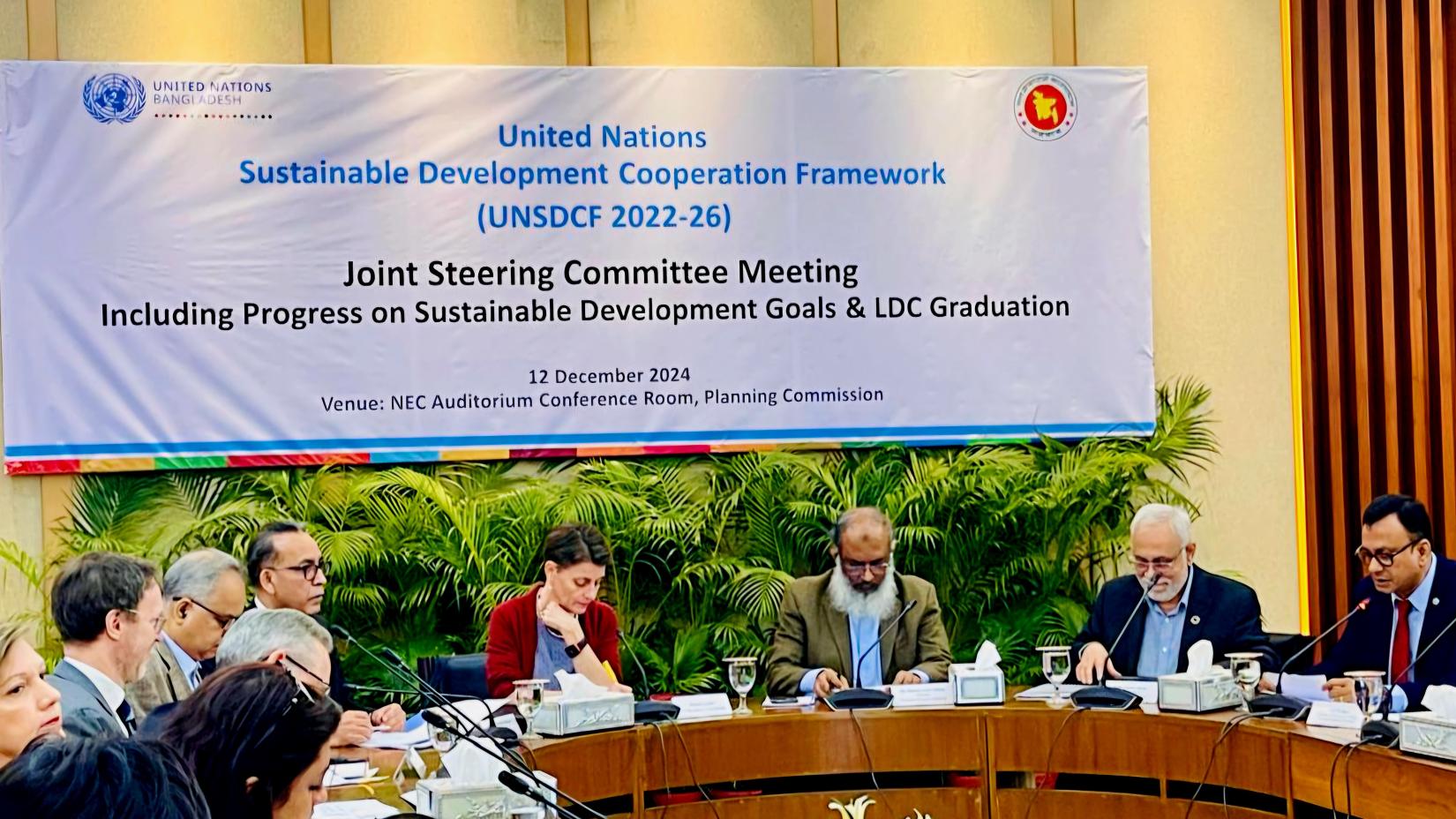UN and Bangladesh Chart Course for Continued Progress on SDGs: Joint Steering Committee Reviews 2024 Achievements and Sets Priorities for the Year Ahead
12 December 2024
Dhaka, 12 December 2024

The Government of Bangladesh and the United Nations Country Team convened a Joint Steering Committee (JSC) meeting to review progress on the UN Sustainable Development Cooperation Framework (Cooperation Framework) and discuss priorities for 2025. The meeting also addressed critical issues regarding implementing the Sustainable Development Goals (SDGs) and Bangladesh’s graduation from Least Developed Country (LDC) status.
The UN acknowledged the significant changes in Bangladesh in recent months and reaffirmed its support for the interim government's evolving priorities, particularly in reform commissions focused on issues such as elections, policing, anti-corruption, and human rights.
To address the SDG priorities in the context of the broader development agenda, participation was expanded to include several senior government officials. Co-chaired by Mr. Md. Shahriar Kader Siddiky, Secretary of the Economic Relations Division (ERD), Ministry of Finance, and Ms. Gwyn Lewis, UN Resident Coordinator in Bangladesh, the meeting was attended by representatives from twenty-eight line ministries, eighteen UN agencies, JSC members, and senior government officials, including the Principal Coordinator (SDG Affairs), the Planning Secretary, and the Member of the General Economics Division (GED).
The Cooperation Framework (2022-2026) outlines UN support to Bangladesh in advancing the Sustainable Development Goals (SDGs) and the 8th Five-Year Plan across five strategic priorities:
- Inclusive and Sustainable Economic Development
- Equitable Human Development and Well Being
- Sustainable, Healthy and Resilient Environment
- Transformative, Participatory and Inclusive Governance
- Gender Equality and Eliminating Gender-Based Violence
In 2024, the JSC reviewed progress across key areas. The UN has supported Bangladesh's economic transformation through various initiatives, including fostering CMSME development, facilitating SDG financing, and promoting environmental sustainability. The UN also mobilized significant aid in response to Cyclone Remal and widespread flooding, notably deploying early warning systems that helped millions prepare. Collaboration with national commissions continued critical reforms in areas like policing, elections, and anti-corruption, in tandem with support for the government in strengthening legal protections for women and promoting gender equality.
Looking ahead to 2025, the JSC identified key policy support and capacity-building interventions to accelerate SDG progress, emphasizing integrated policy, financing, and programming at scale, focusing on Leaving No One Behind. The meeting also identified several key policies and interventions to support Bangladesh’s development in its new political context.
"Our collective efforts will focus on creating a sustainable economic transformation, inclusive, essential services, bolstering climate resilience, enhanced governance framework, and driving gender equality across all sectors.
We stand ready to support the interim government's reform commissions, assist in accessing innovative financing mechanisms, and strengthen data systems to seize this moment for long-term sustainable development," said Ms. Gwyn Lewis, UN Resident Coordinator in Bangladesh.
“To successfully graduate from LDC status, we must embrace a new era of collaboration focused on advancements in science, technology, and artificial intelligence in Bangladesh." said Mr. Siddiky.
The next meeting of the JSC is scheduled for May 2025.

